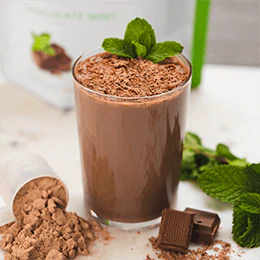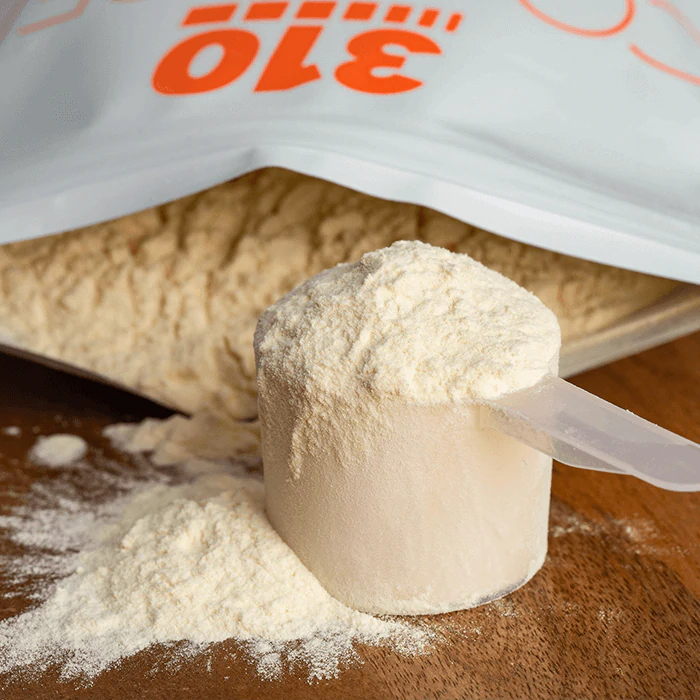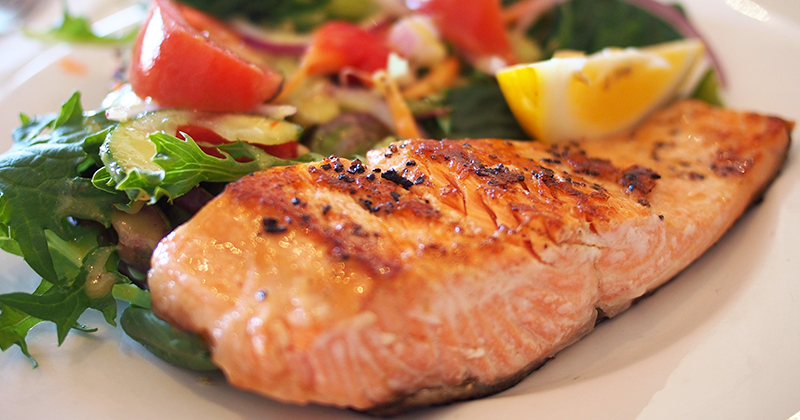Are you highly-intrigued by one of the most popular buzzwords in 2019… keto?! It may seem like everyone around you is “going keto” as they say, and you’d like to get in on the action in 2020. This article will help you understand some of the major potential health benefits, along with corresponding downsides of this dietary regimen. In short, it will outline the pros and cons of the ketogenic diet, and give some helpful tips for keto beginners!
Basically, if you’ve been trying to lose weight or make the switch to a cleaner, healthier diet, the keto diet can help you do both – but only if you do it right. The problem is that many people start keto with a completely warped idea of how the dietary plan works – a viewpoint that can end up in disappointment and even potential health problems.
Read on to learn the major pros and cons of the keto diet, and what the research says in regards to how it can potentially enhance your life and bolster your weight loss efforts…
What is the Keto Diet? Keto for Beginners
You probably already know that going keto means saying goodbye to many of the high-carb foods you probably currently enjoy. This means both unhealthy carbs like refined white bread and sugary desserts, along with typically healthy high-carb foods like starchy vegetables, beans, grains like wheat and oats, and high-carb fruits.
While dropping much of your daily carb content, you also greatly spike your intake of fats, namely healthy ones that support optimal wellness. You may be surprised at just how much fat you’re actually supposed to eat on a keto diet, but fat is actually the main driver of how the keto diet works, namely how yo get into "ketosis".
Ketosis is most likely the aspect of the keto diet that you haven’t quite wrapped your head around yet. For a more in-depth analysis to answer the question “What is the Keto Diet?”, and provide baseline info for success, check out our Keto for Beginners Guide.
But for a quicker answer, the objective of eating high-fat/low-carb is to kick your body into a state where it no longer burns glucose (or carbs) for fuel. Instead, the new state that you enter, called ketosis, allows you to burn ketones for fuel, ultimately burning fat. Does burning more daily fat sound good to you?! If so, read on to learn more…
What Are the Benefits of a Keto Diet?
If you decide to take the leap and try a keto diet, remember that the transformation from burning glucose to fat for fuel won’t happen overnight. Instead, it can take days, weeks or even a month to enter a full state of ketosis, and you may hit some speed bumps along the way (which we’ll discuss below).
Keto is very much what you make of it. Plus, it’s not the kind of diet that you want to start without first being prepared for success, both physically and mentally. To get on board with what the keto diet could look like for you when it comes to your daily calories and meals, check out this Keto Calculator to get individualized recommend macros, (or how much fat, protein and carbs you should eat to meet your goals).
The good news is that if you do decide to give keto a try, and take the time to learn exactly how it can benefit you, you just might be greatly rewarded. Here is how some studies show that the ketogenic diet can help support weight loss and reinforce a healthier diet…
Top 4 Pros of a Ketogenic Diet
1) Can Help You Eat Cleaner
If you follow the dietary plan correctly and make healthy, real-food choices over packaged, keto can actually help you clean up your diet. This is because, in order to follow the diet, you have to cut out sugar and highly-refined carbs – which are arguably two of the worst ingredients for health.
Especially if you have a major sweet tooth, keto can be a welcome ally when it comes to dropping sugar from your diet and breaking any addictive patterns. Though this won’t be a walk in the park at first, since we all know sugar can be highly addictive, the good news is that once you get it completely out of your system, it becomes easier and easier to look the other way.
Plus, your new way of eating on keto will include lots of healthy fats, which are highly satiating, and also provide invaluable nutrients to your body. Not to mention, that once you start eating more healthy fats, you realize how delicious they taste! There are so many scrumptious keto recipes that will make sugar and refined carbs a forgotten thing of the past.
For instance, try this Thin Mint Keto Shake, this Double Chocolate Keto Smoothie, or a variety of mouthwatering keto recipes for every appetite on the 310 Blog.
2) Can Provide Intense Cravings Control
Many of the high-fat foods on the keto diet can also help to increase satiety throughout the day. In short, keto may help to grab the reigns on your ravenous appetite.
When you eat carbs (especially simple carbs like white bread and other high sugar foods), it can lead to fluctuations in your blood sugar levels. But eating a diet with a moderate amount of protein and a high amount of fat can help keep blood sugar levels stabilized – creating consistent energy and potentially reducing cravings.
Some of the best high-fat, healthy foods to eat on keto include healthy oils (like olive, coconut and MCT Oil), avocado, olives, grass-fed butter, more full-fat unsweetened dairy products, nuts and seeds. In particular, MCT Oil is a fast-absorbing oil that may provide instant energy and mental focus, greatly assisting with your keto goals.
3) Supports Weight Loss
You may already know this due to countless testimonials from people following the keto diet, but studies show that being in ketosis can actually help you lose weight at a steady pace. This is because, while following keto, you literally burn your stored fat for energy instead of glucose. Therefore, you’re able to burn off body fat at a quicker rate!
In addition, some studies show that low-carb/high-fat diets in general may be more effective for weight loss than low-fat/high-carb diets. One reason is likely because diets high in carbs and sugar can cause your body to release the fat-storage hormone, inulin. Instead, by greatly reducing carbs, you may be able to essentially "shut off" the release of that hormone, stalling fat storage.
Even so, for many years, major health organizations have been pushing a high-carb, low-fat diet, which has only resulted in startling rates of obesity, presenting a major health challenge. The keto diet is one potential solution to this problem, with studies showing that those following a ketogenic diet exhibit reduced body fat, along with improved cholesterol levels, and therefore greater heart health.
4) May Increase Energy & Focus
Last but certainly not least, you may have heard that the keto diet can increase your energy and mental focus, and for many people, this is true. This is because in general, healthy high-fat foods are naturally energizing, and provide lasting stamina. Many of them are also considered “brain foods”, including avocado and MCT Oil – providing your brain with what it needs for optimal function.
Many parties also consider ketones to be a superior source of fuel – since, when is ketosis, most people don't experience the energy spikes and drops that are so common after eating refined carbs. In addition, the usual “brain fog” that is so common after eating a high-carb meal is often reported as non-existent when following the keto diet.
For this reason, being on the keto diet may contribute to enhanced physical performance, increased productivity, less fatigue, and greater stable energy throughout the day.
4 Potential Cons of the Keto Diet
Even though many people are finding success on the keto diet, it doesn’t mean it’s for everyone. If following a very low-carb/high-fat diet isn’t for you, you may find that less drastic measures, such as a moderate low-carb diet and a higher daily intake of protein fit your lifestyle better.
It’s important to keep the pros and cons of the ketogenic diet in mind before making a decision. To get a well-rounded picture, here are some potential cons of going keto…
1) Digestive Troubles
When you start drastically reducing the amount of carbs in your diet, one thing you have to be very careful about is making sure you still get enough fiber. Low-carb is not no carb! This means you still need to eat enough low-carb, high-fiber veggies each day so you don’t suffer GI troubles like constipation. Check out this Keto for Beginners Guide to learn more.
Another great way to ensure that you get enough fiber, especially on a busy schedule, is with wholesome, keto-friendly meal replacement shakes like 310 Shakes.
These shakes provide plant-based nutrition perfectly suited for low-carb diets, with only 2g of net carbs, 15g of high-quality protein, 5g of fiber, and no sugar. And this keto kit comes with a 310 Shake in the flavor of your choice along with other invaluable keto essentials, like MCT Oil. Find out more about the 310 Keto Kit now!
2) Eating Too Many Saturated Fats
A common misconception about high-fat foods in general is that they are bad for your health – but there is highly-conflicting research on this. In reality, many high-fat foods actually support optimal health. Even saturated fats, which used to be villainized as bad for your heart, are now being shown to support heart health – but it's still important to focus on balance.
Many people that go keto end up eating an overabundance of highly-saturated animal fats, which may end up negatively affecting your health in the long-run. Instead, aim to use healthier sources of both saturated and unsaturated fats like healthy oils (coconut, olive, MCT), nuts and seeds, fatty fish, avocado, and olives.
3) Keto Flu
As mentioned, the “great feeling” that people describe as being in ketosis doesn’t usually happen overnight. Your body needs some time to adjust to not eating carbs and this transition phase may come with a few side effects. Basically, when you cut sugar and greatly reduce your carbs, your body might go through a bit of a "detox" phase.
Many people call this the “keto flu”, since during this time period, you may have actual flu-like symptoms including nausea, headaches and fatigue. You may also have strong sugar cravings, irritability and trouble sleeping. But, these symptoms will eventually pass, in anywhere from a few days to a few weeks. If not, we recommend making some changes and speaking with your doctor.
4). Difficult to Sustain
Finally, when it comes to pros and cons of the ketogenic diet, another potential con to keep in mind is that although many people start keto with enthusiastic vigor, it can be difficult to maintain. You may end up simply missing all the higher-carb foods that you really enjoy, or you might feel that it's too hard to keep up with the diet in social situations.
To help combat this, make the keto diet more of a lifestyle than a short-term gig. Adding keto-friendly meal replacement shakes can help lighten your load when it comes to meal-planning, and ensure that you get enough fiber and avoid nutrient deficiencies. Plus, consider adding in keto cycling to help you get more healthy carbs into your diet after doing regular keto for a period of time.
In addition, certain keto supplements, (such as MCT Oil, BHB Exogenous Ketones, and sugar-free green juices), may help to get into ketosis faster, and ensure you get all the nutrients you need to feel your best. Finally, having a community of people committed to living a healthier lifestyle to provide continued motivation and encouragement can make all the difference.
Whatever you decide, remember that keto, like all dietary plans, is not one-size-fits-all. The best keto diet for you will be the one that most closely matches your individual goals and lifestyle. This means finding the keto-approved foods you like best, and developing a meal plan that works best for you. It also means going easy on yourself whenever you fall off track, and simply resolving to get back onboard the next day.
Ready to begin keto? If so, we have a bunch of tools and advice for your adventure! Just check out the Ketogenic Diet section of the 310 Blog to get started.
Sources:
https://www.sciencedirect.com/science/article/pii/S0021915019315898
https://www.hsph.harvard.edu/nutritionsource/healthy-weight/diet-reviews/ketogenic-diet/
https://promedicahealthconnect.org/wellness/the-pros-and-cons-of-the-keto-diet/
https://www.nm.org/healthbeat/healthy-tips/nutrition/pros-and-cons-of-ketogenic-diet
https://www.newportnaturalhealth.com/2018/07/ketogenic-diet-benefits-costs/
https://www.huffpost.com/entry/keto-diet-pros-cons_n_5b3ba3b0e4b09e4a8b27ebc4




















